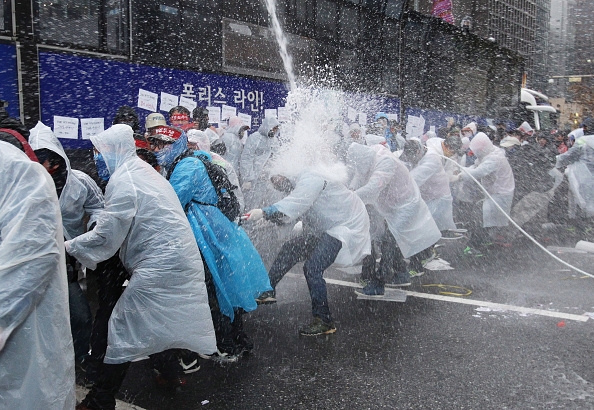Police Officers Raid Labor Groups' Offices As Part Of Their Ongoing Investigation Of Anti-Government Protests

An estimated of 80,000 people filled the streets of South Korea last November 14 to express their opposition on "the conservative government's push for labor reform and mandated, state-issued history textbooks," VOA news reported on the same day.
Aside from that, the protesters reportedly called on South Korean President Park Geun Hye to step down from her position amid increasing youth unemployment.
The large-scale anti-government rally last week turned violent and left at least 30 people injured and wounded.
Al Jazeera noted Saturday that the protest became violent after police personnel fired tear gas against the South Korean protesters. Aside from that, reports have revealed that they have also used water cannons.
Labor, civic and farmers' group reportedly were the ones that initiated the large-scale rally. Further reports have revealed that the rally aimed to gather South Koreans in order to express their complaints against the South Korean government.
On the other hand, in the pursuit of the ongoing probe on last week's large-scale anti-government rally, police authorities raided the offices of labor groups reportedly suspected of conducting prohibited and brutal protests.
"The groups are suspected of leading the illegal, violent protest, and we will secure evidence to find those who orchestrated them," an officer from Seoul Metropolitan Police Agency says, as noted by Yonhap News Agency on Saturday.
A total of 12 offices of eight labor groups were raided by the police on the same day, including the Korean Confederation of Trade Unions (KCTU).
The police authorities said these labor unions allegedly spearheaded the aggressive rallies "by attacking police officers with banned tools such as iron pipes and disrupting the exercise of due authorities while illegally occupying streets."
In addition, the police added that the recent anti-government rally was most likely the largest at a demonstration in the country since May 2008.



